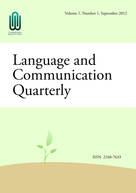


Volume 10 Issues 1-4 (2021-12-31)
Volume 9 Issues 1-4 (2020-12-31)
Volume 8 Issues 1&2 (2019-06-30)
Volume 7 Issues 3&4 (2018-12-31)
Volume 7 Issues 1&2 (2018-06-30)
Volume 6 Issues 3&4 (2017-12-31)
Volume 6 Issues 1&2 (2017-06-30)
Volume 5 Issues 3&4 (2016-12-31)
Volume 5 Issues 1&2 (2016-06-30)
Volume 4 Issues 3&4 (2015-12-31)
This study empirically explains the player value of massively multiplayer online role-playing games (MMORPGs) from the perspective of network externalities. A hedonic pricing model is formulated to determine MMORPG prices in relation to factors of social network formation, such as installed player base and density of social interaction. It is hypothesized that populating a game space with more avatars would expand the supply of social encounters and that enabling player-versus-player (PvP), in addition to player-versus-environment (PvE), combats would intensify the rigor of social interaction inside the game, both of which in turn increase the play worth to individual gamers. The hypotheses are tested on a contemporary set of MMORPGs operating in the worldwide market of English-speaking gamers. Regression estimation shows that games which enlist more players tend to charge a higher subscription fee. Also shown is the tendency that supporting PvP combats is associated with a higher price. These results are obtained while games’ attributes and qualities are controlled for.
The last two decades have witnessed a steady growth in video listening test development and research. However, the use of video in listening tests remains a controversial issue. Using the methods of immediate retrospective verbal report and follow-up semi-structured interview, this study aims to explore six Chinese learners’ test-taking strategy use in an English placement listening test, which consisted of four mini-lectures with two in audio modes and two in video modes. All the test-taking strategies were coded based on the test-taking strategy classification developed by Douglas and Hegelheimer (2007). Analysis results indicated that there were noticeable differences in test-taking strategy use in different input modes. Compared with audio listening tasks, participants in this study used fewer Approach to Problem strategies (test-takers’ initial problem-solving strategies) and more Source of Knowledge strategies (test-takers’ direct reasons for their choices) on video listening tasks. Among the reported visual strategies, three were used in one video-based mini-lecture (Lecture 3) and 14 were used in another mini-lecture (Lecture 4). The visual information was mainly used to help participants refine their comprehension, initiate hypothesis, and confirm their hypotheses or decisions. However, some of the visuals were found to be confusing and hindered some participants’ listening comprehension. The implications of this study are discussed at the end of this study.
Rape as a tool of warfare has been a near universal phenomenon. One form of warfare in which rape is prevalent is genocide, the analysis of which is the primary purpose of this study. The questions that drive this study are: what was the identity construction of Tutsi women, created by Rwandan media propaganda? And how did it affect their sexual victimization during the Rwandan genocide? In order to answer these questions, this study examines colonial and eventually genocidal discourses in Rwanda using historical texts and state enforced Rwandan media sources. The analysis maps a trajectory of discourses of race, class and gender that began as a foundation for class oppression and eventually erupted into the genocide of 1994.
In 2004, the American nation was introduced to the formidable rhetorical skills of the then Senator Obama with his delivery of the keynote address at the Democratic National Convention. The skills on display then have only grown and developed throughout the years leading to his successful presidential campaign of 2008. This paper addresses the various rhetorical devices that Obama uses so expertly: The use of personal narrative, repetition, metaphors, clichés, questions, opposites and so on. It is the various combinations of these devices that make reading or hearing an Obama speech such a rhetorical pleasure.
1ST Untested Ideas International Research Conference
June 28 – 30, 2013
Niagara Falls, USA
UI JOURNALS
With the goal of advancing research in the social sciences, Untested Ideas (UI)
Research Center provides the researchers and scholars worldwide with resources,
grants, and academic exchange platforms and channels through research interest
groups, memberships, funded research projects, annual conferences, training
workshops, and publications. The mission of UI Research Center is to serve the social
sciences researchers and scholars in the world and aim to promote advanced and
cutting-edge research methodology, publish investigations on new and untested ideas,
and disseminate research findings that make original and significant contributions to
the social sciences.